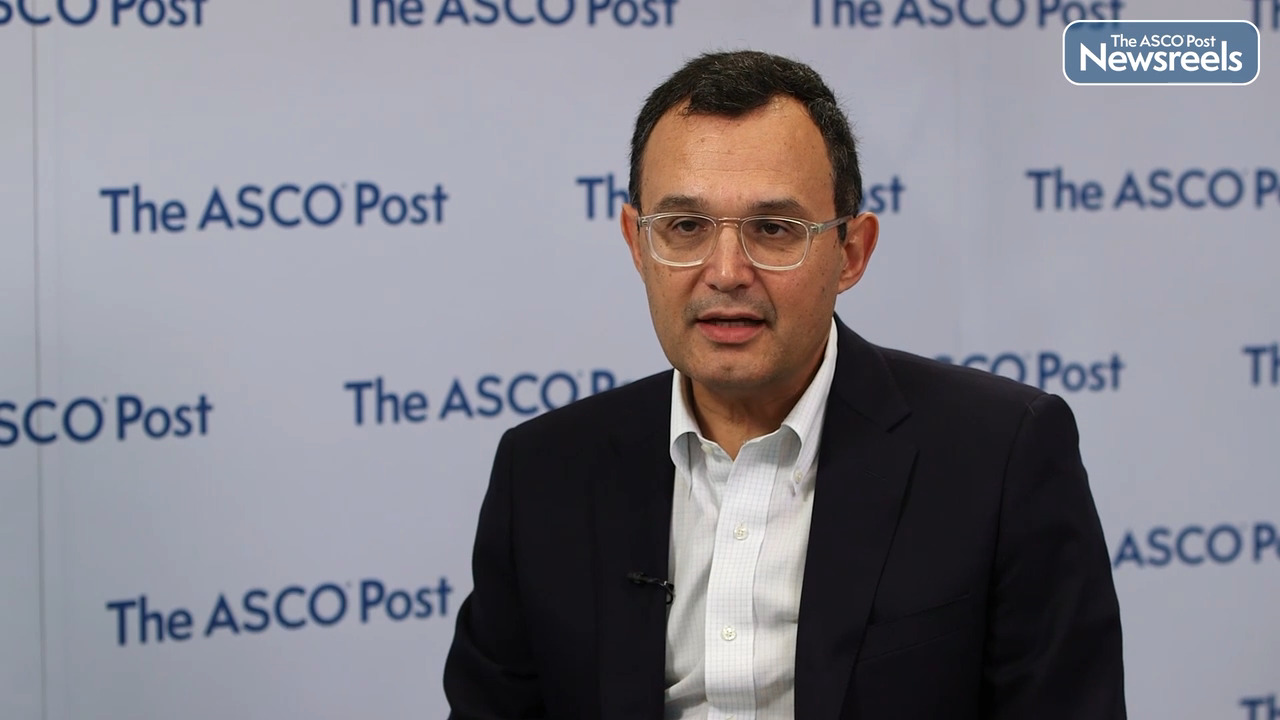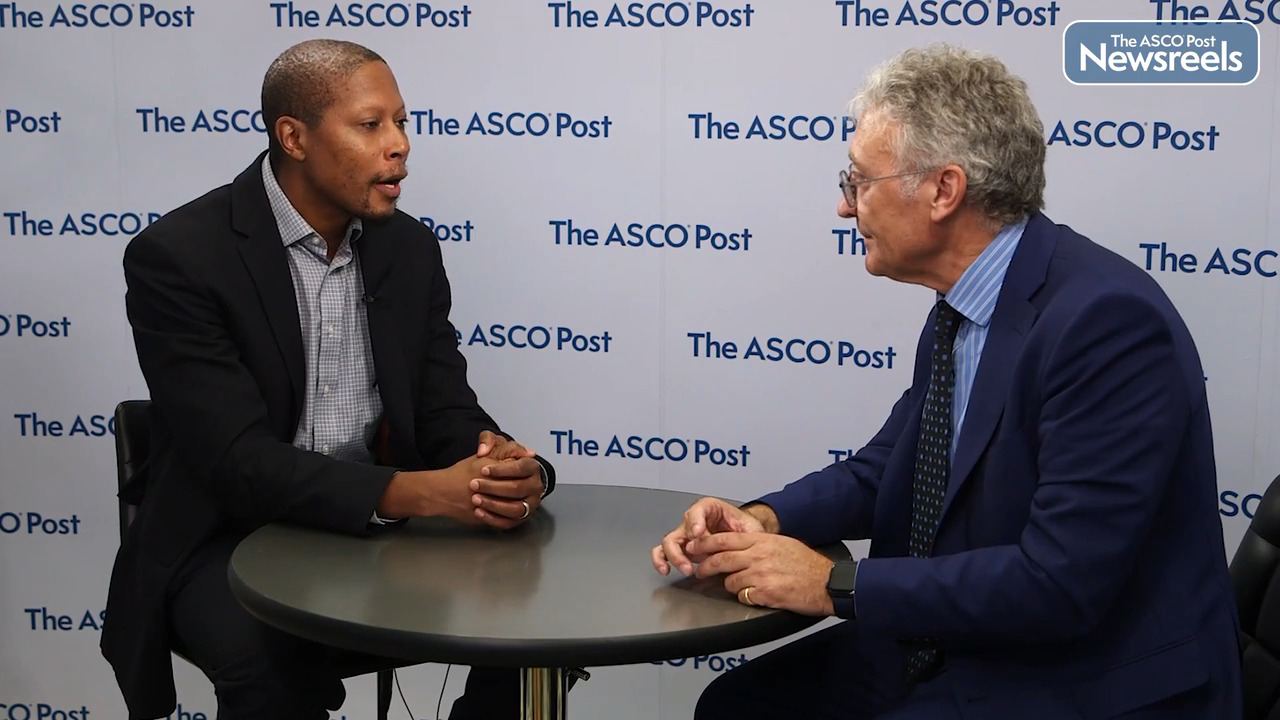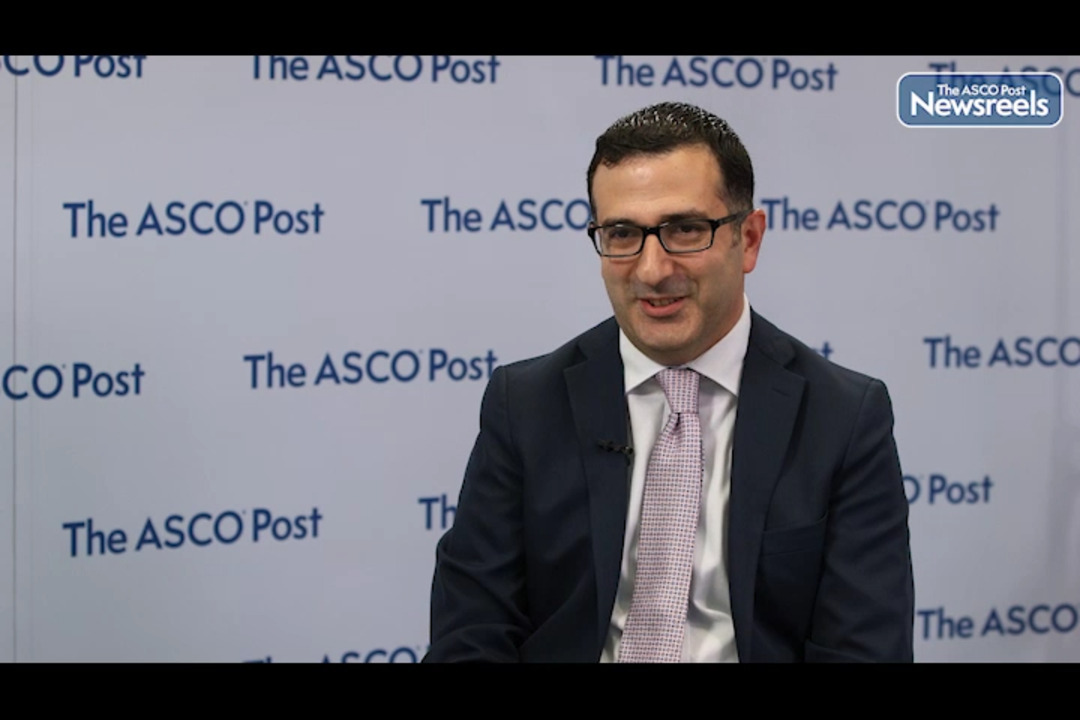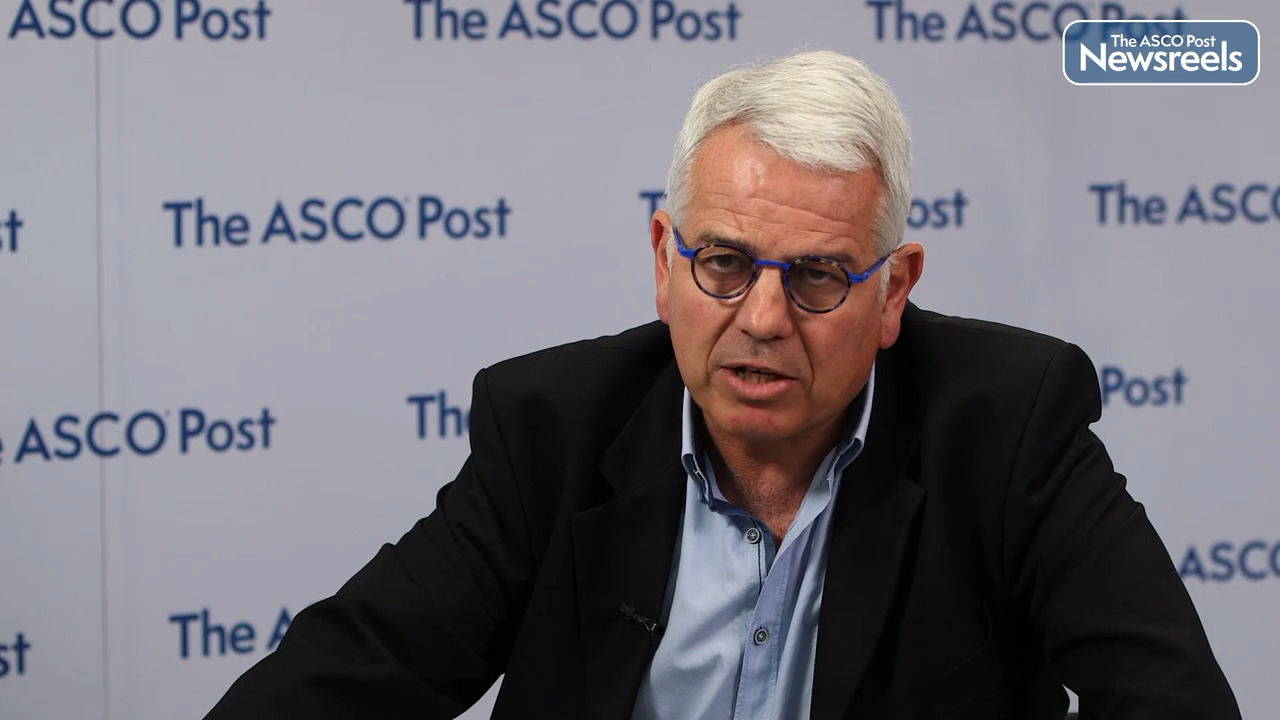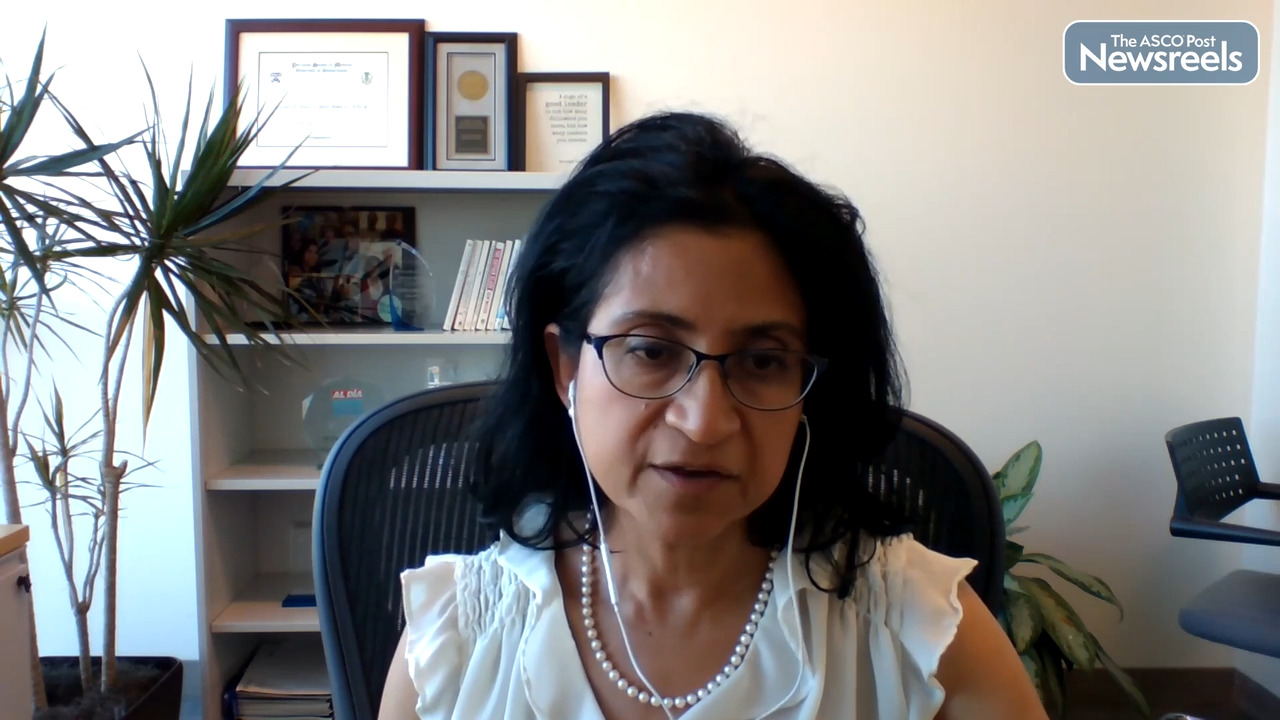Transcript
Disclaimer: This video transcript has not been proofread or edited and may contain errors.
Tycel J. Phillips:
Can you give me a little bit of background information about your presentation?
Swetha Kambhampati:
Sure, absolutely. Thank you for having me. Brexu-cel is currently the only approved CAR-T product in relapsed mantle cell and there's very limited data on real world safety and efficacy. The pivotal results from the ZUMA-2 led to the approval but it's always important to assess the real world safety and efficacy as clinical trials can have very selective eligibility criteria, so that was the objective of our study. We were aiming to look at safety and efficacy in the real world patient population as well as look at impact of prior treatment on these outcomes.
Tycel J. Phillips:
No, very good points. I think Brexucabtagene was a very good treatment for our patients, especially with very limited options, so what did you guys see as far as overall response rate? How does that compare to ZUMA-2?
Swetha Kambhampati:
Yeah. The response rates were actually very comparable to the ZUMA-2 study. The overall response rate was 90% and CR rate was 78%, so looked very promising. This was a very heavily pre-treated population, median prior lines four and 20% TP-53 and 40% TI-67 high index so it was reassuring to see these response rates in such a heavily pre-treated population.
Tycel J. Phillips:
Oh, that's great news, if we can actually replicate that in real world setting.
Swetha Kambhampati:
Yeah.
Tycel J. Phillips:
What about the toxicity profile, how did that look?
Swetha Kambhampati:
Yeah, that's always an important thing to think about as well and the CRS and ICANS was actually overall pretty comparable. The any grade was 88% in the CRS and 60% in ICANS and in the high grade was 10 and 28%, so overall also comparable to ZUMA-2 results.
Tycel J. Phillips:
Okay. That's also very encouraging no new safety signals and so, more importantly, because that was a big thing that we've been discussing, how has prior treatments impacted how these patients are responding?
Swetha Kambhampati:
Yeah, that's absolutely an important objective of the study and I think we were particularly interested in a couple things. One was the BTK naive patient population because they were not included in the ZUMA-2 study. We found that actually the BTK exposed and naive patients had similar response rates overall and survival was very comparable in these population, there's no significant differences in the outcomes. In the BTK and naive patients, the safety was also overall very comparable. The prior BENDA was an interesting result as well. Some prior data suggested there may be some compromised efficacy but we did not see that in this study, but we did see some differences in toxicity. The patients who had prior BENDA had prolonged thrombocytopenia but, interestingly, reduced risk of ICANS but no impact on safety or outcomes.
Tycel J. Phillips:
That's interesting.
Swetha Kambhampati:
I mean, other outcomes.
Tycel J. Phillips:
Yeah, very interesting. So very big dataset. Have you guys finished looking at all the information or do you think you're going to pull out some more information that will later come out to give us a better idea of what's going on with these patients?
Swetha Kambhampati:
Yeah. No, absolutely important. I think we still want to look at longer follow-up. This was a median 12 month follow-up so we want to see how durable these responses are going forward. Then, other things, we'd like to pull out more granular details. There's some missing information on timing from prior BENDA to [inaudible 00:03:21], I think that's an important thing to look at, and some more granular details on disease characteristics. Those are things we'd like to look at in the future.
Tycel J. Phillips:
Okay. It sounds like, at least moving forward, we'll get more information from this patient population. I think we can both agree the more real world data we get the better we'll know how to sequence some of these treatments, especially because bendamustine is quite entrenched in several lines of frontline therapy especially, and so how that impacts such an effective treatment such as JAKARTA is going to be very important for us to know.
Swetha Kambhampati:
Absolutely.
Tycel J. Phillips:
I thank you for joining us today and I thank you for this wonderful presentation and look forward to seeing you in the future.
Swetha Kambhampati:
Thank you so much again. Thank you.
